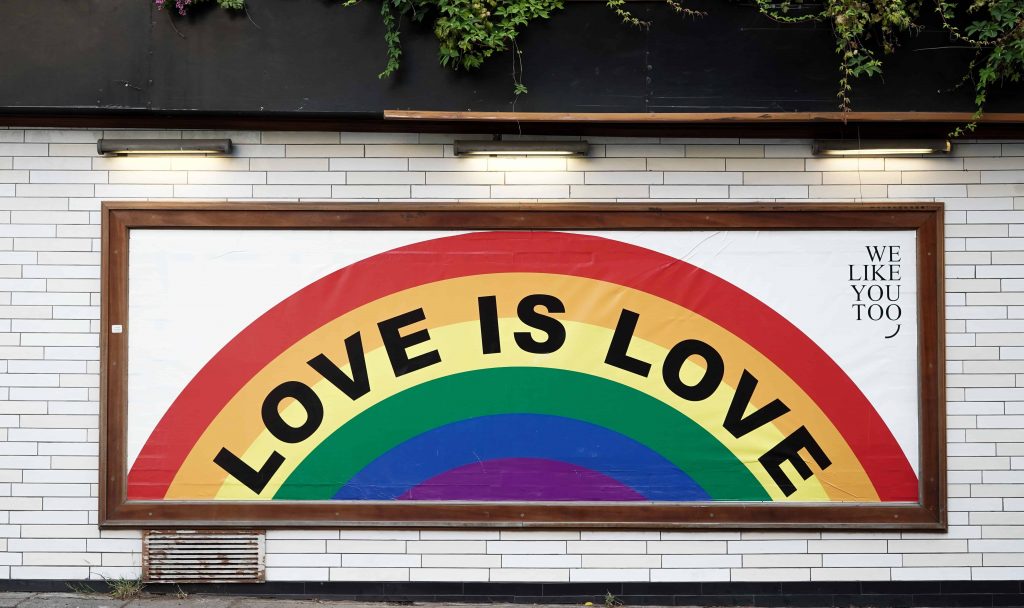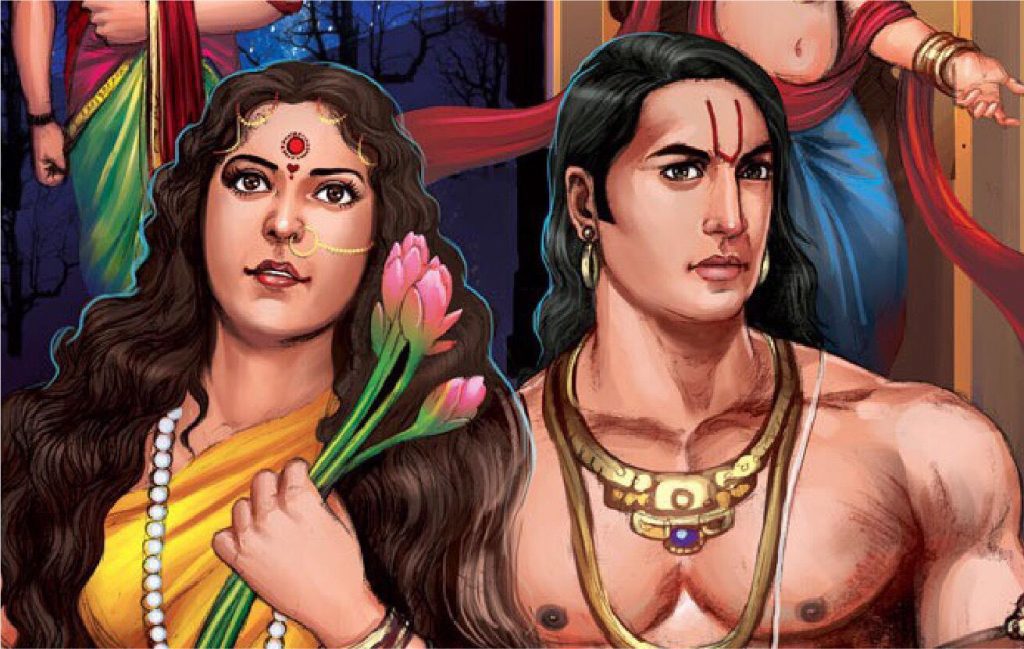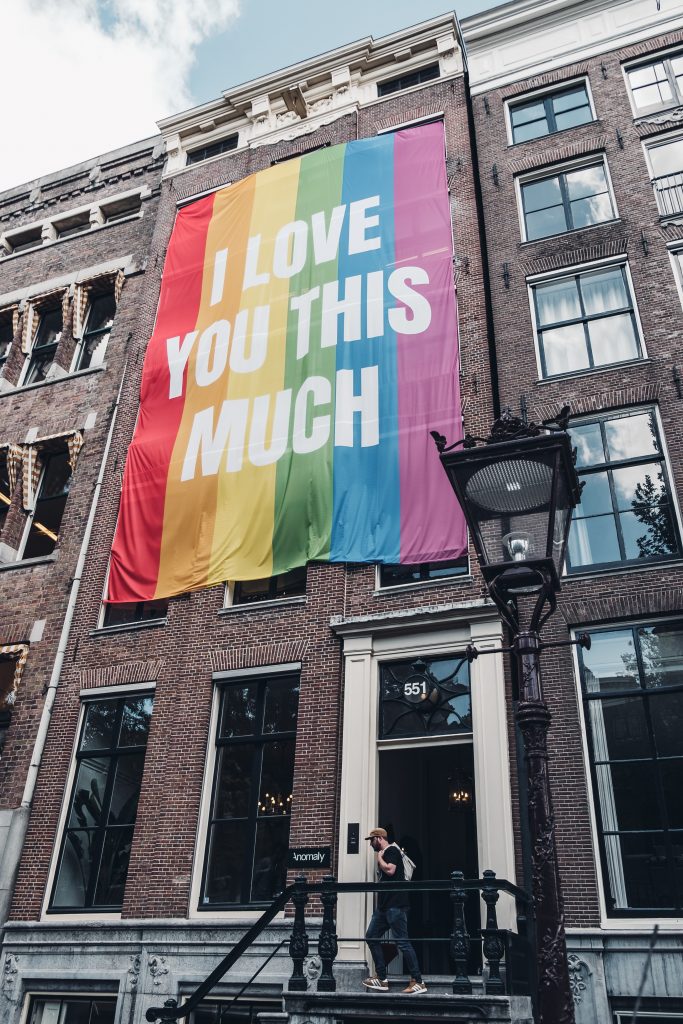
It is difficult to right a wrong by history, but we can set the course for future. They have the right to dignity and free of discrimination.
Justice D.Y. Chandrachud
India is the land of customs and traditions. One of the traditions that have been followed from a very long time is sticking to heterosexuality, and criminalising homosexuality for some reason that British people thought is unnatural and engraved the law which took away rights of the people in our own country. This has created a tremendous loss to the people who belonged to the LGBT community. According to Hindu folklore, same-sex relationships were joyful and never meant to be sinful, even Aristotle in his writings was evident about the preference of two male lovers.
Today, LGBT rights are a very heated debate in every other country. A lot of countries have accepted them and the others are just as brutal with them as they were. Where some of the countries have recognised their rights, the countries like Iran, Afghanistan, Somalia, Sudan, Brunei, Mauritania and Saudi Arabia have officially declared it as a crime proportionate enough for awarding it with a death penalty. It is brutal, as it is a debate that concerns their human right that remains violated by such laws.
The developed countries so far have recognised their rights, and are encouraging them to come out of the closet. Sex is something people are born with, the gender signifies their identity, and their sexuality is the choice that they make. We, as humans, shall respect their choices. They have been facing a lot of discrimination and problems with respect to their basic needs.
The year 2018-19 came out to be a boon to the LGBT community when they were legally recognised and were facilitated with the rights. But are the rights given to them sufficiently? No, they are not. For India to be a more peaceful and safe country, it needs to work on the rights and legislations that will make sure that the life and property of this section of the society are secured. This may prove to be an unconventional field to law, but today it is one of the most important issues.
The LGBT History – United States
There existed the two-gender framework in every developed country, it was the feminists who drew a distinction between gender and sex. USA has a deep history of LGBT; they at first were not familiar with the concept other than that of the existing ones. It was in 1924 when gay rights were recognised for a short period when they were brought into the notice of the common people by a transgender support group.
It was just a matter of time that it all became an issue that a lot of people talked about. In 1950 an activist group came up to protect and improved rights that should be provided to gay men. After the awareness among people, the first sex reassignment surgery took place in New York. When people became familiar with these social phenomena, they decided to include a legal aspect with it.

It was in the year 1958, when the USA granted the freedom of speech to the homosexuality with due respect, that they deserved, it was given that the pro-homosexuality writers shall not be considered obscene (Inc. v. Olsen). As the years passed by, the government started thinking rationally without the clogging of traditional concepts. Illinois became the first state to legalise same-sex consensual sex in 1962, causing havoc in the state, and anti-homosexuals started to protest. A lot of protests and riots took place.
In the year 1976, a lot of homosexuals started to hold public offices where they were being humiliated and had to face discrimination. But this did not stop any homosexual to take a step back rather people like Gerry Studds, Harvey Milk continued to stand up for their rights to hold a public office. That’s when a rainbow flag was designed by Gilbert Baker. After the mere recognition of homosexuality, there was a speedy increase in the hate crimes towards the community, which demanded laws against such crimes.
In Romer v. Evans the gay rights were addressed by the court but it failed to make an amendment to the constitution while reviewing the equal protection clause with respect to the creation of homophobia, and violence towards homosexuality as a whole, which was overturned in the case of Obegerfell v. Hodges, where the same-sex marriage was to be considered as a fundamental right under the due process clause and equal protection clause.
In Lawrence v. Texas, the sodomy laws were struck down, making same-sex activities legal in the state of Texas. US v. Windsor in 2013, set the precedent that any restriction on the same-sex consensual marriage is unconstitutional as it attacks an individual’s personhood and dignity. In Bostock v. Clayton Country, the employment discrimination that the homosexuals tend to face is prohibited by the Civil Right Act, 1964.
They might have recognised their rights but are they free to do whatever they want to? No, they are not. There is a scheme that they use in the army that is don’t ask, don’t tell, which is a quote that they use to protect the homosexuality in the military services, because they are not allowed to enrol themselves in the military if they are open about their homosexuality. The developed countries have also come so far but they still need their people to fully recognise them and treat them equal to everyone. This will only happen when the government is ready to make proper laws providing them with all the rights that they demand in every step or aspect of their life.
The LGBT History – India

India, since ancient times, has been practising homosexuality and it was acceptable. There have been a lot of instances; in the Hindu folklore which depicts that homosexuality was a part of the society even then. The Vedic text depicts the presence of LGBT in our country for a long period of time. Homosexuality was not only a major part of ancient India but also an integral part, Shikhandi from Mahabharata, Brihannala and Mohini are an example. Kamasutra also talks about homosexuality or non-vaginal sex. The architecture of old temples depicts the culture of that society, which does show homosexuality. One such folklore is that of Ila.
Ila was born to Manu, the progenitor of the entire humankind. Ila, being completely unaware, entered an area where Lord Shiva and Goddess Parvati used to sport. Only females were allowed past the perimeter, even Lord Shiva had to assume a female form. Since Ila was a male, he got transformed into a charming female once he stepped inside the perimeter, hence creating the tale of Ila.
India has had a long history of attacks and invasions that have affected its culture and society a large extent. It is not wrong to presume that the invasions, conquests and colonization have consumed a lot from our own country. One of them is the rights of homosexuals to live with dignity and respect and to be treated as equals. Section 377 of the Indian Penal Code, criminalised any type of sexual activities other than the natural sex that is vaginal sex.
In the case of Naz Foundation v. Govt. of NCT Delhi of 2009, section 377 and other legal prohibitions against private, adult, consensual and non-commercial same-sex were held to be in violation of the fundamental rights. In continuance to which in 2017 a UCC was demanded to legalise same-sex marriage, but was not considered.

This was the law until in 2019 the Transgender Persons (Protection of Rights) Act came into existence. There has been a chain of legal proceedings to check on LGBT rights in India. It started with National Legal Services Authority v. UOI, which laid the foundation for homosexuality when it recognised the presence of the third gender; it also provided the transgender that fundamental rights are applicable to them too. It prohibited discrimination based on gender identity under the constitutional equality, it also declared the whole community as socially and economically backward class facilitated them with the reservation in the educational educations and for the job opportunities in the private sector. This case also recommended a psychological test for sex determination rather than a biological test. Separate public toilets and other facilities were provided to the homosexuals.
In 2018 Navtej Singh Johar v. UOI, the supreme court decriminalised the same-sex relationship, provided it must be consensual and among adults. It was included that if the decision of the court is not followed it will be treated as discrimination on the basis of sex under the article 15 of the Indian Constitution, this was added so that it cannot be revoked in future with the association to the doctrine of progressive realisation of rights. This judgement lead to the creation of legislation for the protection of transgender rights and helped enough to aware the Indian society about them in furtherance to treat them equally.
Conclusion – The reforms that need to be brought
The governing bodies might have decriminalised a section and made laws they thought fit for the books. But if we go to see things practically there are lot more things that the homosexuals are going to need for their survival in a society like ours. India, being a versatile country, welcomes all the changes with all its might, but only superficially and not practically. At each and every step homosexuals in India commonly called hijra or two-spirited people have to face a lot of challenges throughout their lives. It’s like a state with no sovereign to them where their rights, property, choices and even their life is not safe.
Indian society accepts hijras with respect but they do not support homosexuality, they will not support if their own daughter loves a girl or their son chooses to be with a guy. Indians are far away from the concept of gay, lesbian, transgender and bisexuals in practicality, they all consider it a disease. In my opinion, with the quashing of section 377 from the Indian Penal Code, we should also legalise gay and lesbian marriages. They do not need to be a community, rather their presence in the society should be normalised and they should be treated with the same mentality as the people who marry or love the opposite sex.

For the society to normalise this, the government shall make changes to all the regulations that say a man or a woman with adding a third gender to it. Our laws need to be changed because the homosexuals need them to. They should not only be granted anti-discriminatory laws or laws that allow them to have a relationship with whoever they want but rather its high time that they should be granted the marriage rights the same way that a male or a female has.
They should be granted right to justice against the hate crimes, they should have adultery laws, laws if they are raped or molested or their modest being outraged. They should have rights to serve in the military or public services, they shall have adoption laws, parenting laws, there should be an age of consent, for taking the decisions for major changes in them that they want to have such as sex reassignment surgery, hormone replacement therapy etc., they shall be granted with inheritance rights and many more.
It’s high time we come up with such laws that the lives of homosexuals become a lot easier and peaceful. These are the laws that they need and we being a democratic, versatile, diverse country will have to grant them later or sooner to take a step forward toward growth and development.
Editor’s Note
Recognising flaws in the country and implementing laws for those flaws, cannot be sufficient for making the country flawless. The LGBT, though a recognized community by law with certain rights, is not getting the respect and support that it is struggling to get. There is still a battle to be fought against the society’s perspective in seeing and valuing the LGBT community.